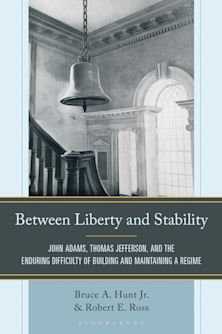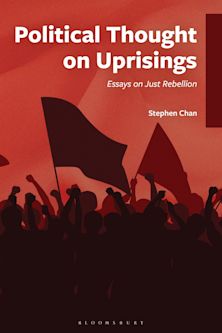- Home
- ACADEMIC
- Politics & International Relations
- Political Theory and Philosophy
- Politics and Progress
Politics and Progress
The Emergence of American Political Science
Politics and Progress
The Emergence of American Political Science
This product is usually dispatched within 3 days
- Delivery and returns info
-
Free CA delivery on orders $40 or over
You must sign in to add this item to your wishlist. Please sign in or create an account
Description
In Politics and Progress, author Dennis J. Mahoney describes the emergence of American political science as a separate academic discipline in the era between the Civil War and the First World War, with the pivotal event of the founding of the American Political Science Association in 1903. His book, a testament to the integrity of American political science, chronicles its intellectual and cultural development. According to Mahoney, American political science borrowed its ideas from European, especially German, political science. Subsequently, it was influenced by the notion of scientific progress as exemplified in the writings of American pragmatists and progressivist politics. Mahoney notes that institutionalization in the American academy necessarily required the displacement of earlier approaches to politics, including the tradition of political philosophy and the political science of the American founding. As the discipline grew, it was characterized by its drive toward organization and professionalism, the study of administration (as contrasted with policymaking) and a seemingly ceaseless quest for a distinctive scientifically oriented methodology. These characteristics are maintained in contemporary mainstream political science. Politics and Progress marks an important chapter in American intellectual history and is a vital resource for political scientists researching their roots.
Table of Contents
Part 2 Origins and Influences
Chapter 3 German Political Science
Chapter 4 Pragmatism
Chapter 5 Progressivism
Part 6 The Old Political Science
Chapter 7 Political Philosophy
Chapter 8 Declaration of Independence
Chapter 9 The Constitution
Part 10 The New Political Science
Chapter 11 Professional Organization
Chapter 12 Administration
Chapter 13 Methodology
Chapter 14 Conclusion
Product details
| Published | Feb 13 2004 |
|---|---|
| Format | Paperback |
| Edition | 1st |
| Extent | 180 |
| ISBN | 9780739106563 |
| Imprint | Lexington Books |
| Dimensions | 228 x 162 mm |
| Publisher | Bloomsbury Publishing |
About the contributors
Reviews
-
With the gimlet eye of a surgeon, Dennis J. Mahoney exposes the ambitious origins of contemporary political "science" in the Progressive movement. Political science comes with a political agenda. We have competent studies of President Woodrow Wilson, but we can't really understand what he was about unless we know professor Woodrow Wilson's agenda. Mahoney shows convincingly how most political science education today has come to oppose the principles on which the American polity is based- limited government and its natural rights foundation. It is no wonder that the Declaration of Independence is not taken seriously by contemporary political science, whether on the left, far left, or the few conservatives in the academy. His study is simultaneously comprehensive and focused, sober and liberating. Critics of ideological bias in American higher education are merely crying in the wilderness unless they take Mahoney's arguments to heart.
Ken Masugi, Director, Center for Local Government and Senior Fellow, The Claremont Institute



































